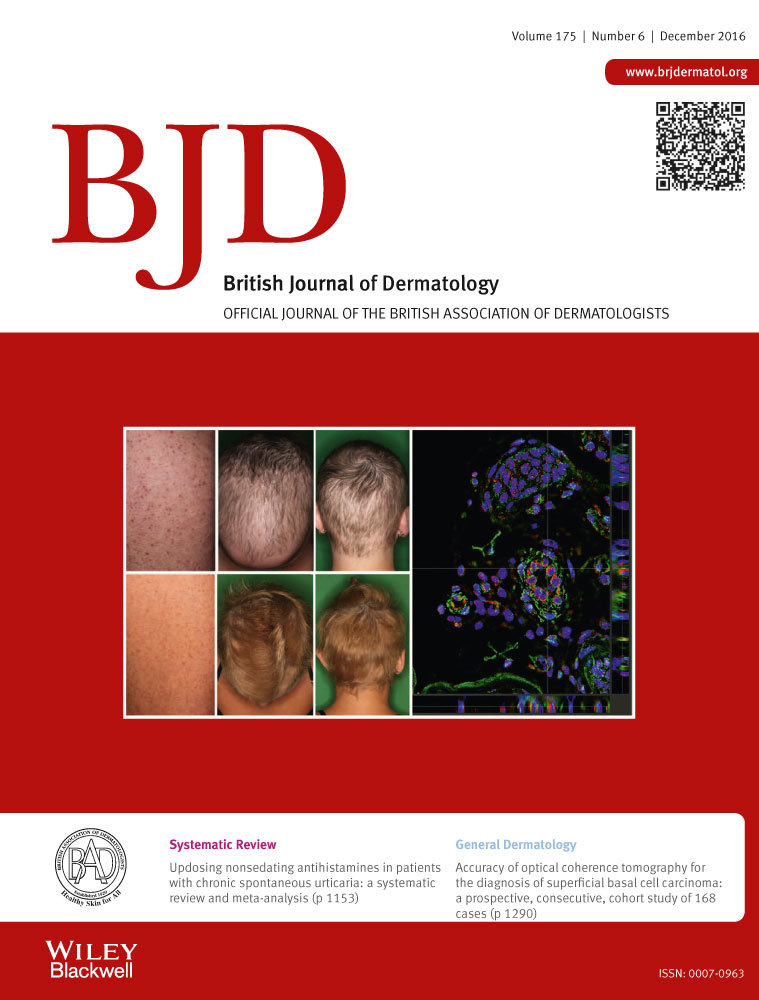Impact of systemic alitretinoin treatment on skin barrier gene and protein expression in patients with chronic hand eczema†
Plain language summary available online
Summary
Background
Chronic hand eczema (CHE) is a common inflammatory skin disease that affects approximately 10% of the population. Systemic alitretinoin has been shown to be effective in patients with CHE who are refractory to topical corticosteroids.
Objectives
To analyse the impact of alitretinoin on the skin barrier genes and protein expression in the skin lesions of patients with CHE.
Materials and methods
Fifteen patients with CHE were treated with 30 mg daily of alitretinoin for up to 27 weeks. Disease severity was assessed using a clinical score. Skin biopsies from all the patients were evaluated before and after therapy for the expression of Ki-67, various skin barrier genes and thymic stromal lymphopoietin (TSLP) by real-time quantitative polymerase chain reaction and immunohistochemistry.
Results
After alitretinoin application, an improvement in the clinical severity of CHE was observed in the majority of patients. Analysis of skin biopsies before treatment showed a significant increase in Ki-67-positive cells in the suprabasal layer and a dysregulated expression of various skin barrier genes, such as claudin 1, loricrin, filaggrin and cytokeratin 10, which were normalized after treatment. TSLP was significantly upregulated in patients with CHE and also normalized after alitretinoin treatment and negatively correlated with filaggrin.
Conclusions
Our data indicate that the expression of barrier genes and proteins was normalized following treatment with alitretinoin in patients with CHE. The change in expression levels of these genes correlated with the clinical efficacy, suggesting that alitretinoin exhibits a disease-modifying activity. TSLP is upregulated in CHE and seems to counteract filaggrin expression in the skin.




